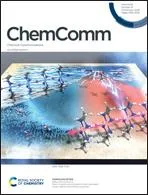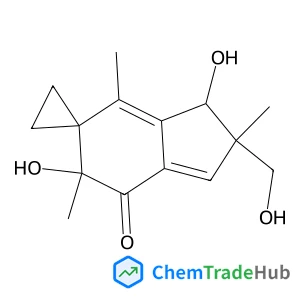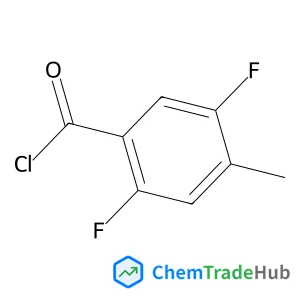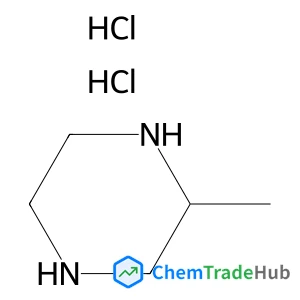Cu2ZnSnS4 nanocrystals for microwave thermal and microwave dynamic combination tumor therapy
Literature Information
Taya Tang, Xiaomu Xu, Zhiwen Wang, Jijing Tian, Yue Yang, Caizhang Ou, Huihui Bao, Tianlong Liu
Cu2ZnSnS4 nanocrystals (CZTS NCs) have been demonstrated to be effective in tumor therapy as a novel susceptible agent for microwave thermal and microwave dynamic therapy. CZTS NCs intensify the heating effect of microwaves with a significant temperature increase of about 15 °C compared to the control group and showed remarkable anti-tumor performance after 5 min of microwave irradiation. For the first time, we report the microwave absorption performance and singlet oxygen production of CZTS NCs used in microwave therapy, which reveals new opportunities for novel combined mechanisms of microwave thermal and microwave dynamic tumor therapies.
Related Literature
IF 6.222
Transition-metal-free insertion reactions of alkynes into the C–N σ-bonds of imides: synthesis of substituted enamides or chromonesIF 6.222
Performance of electrode-supported silica membrane separators in lithium-ion batteriesIF 6.367
Development of wound healing scaffolds with precisely-triggered sequential release of therapeutic nanoparticlesIF 6.843
Contents listIF 6.222
Highly efficient and durable III–V semiconductor-catalyst photocathodes via a transparent protection layerIF 6.367
Coexisting order and disorder within a common 40-residue amyloid-β fibril structure in Alzheimer's disease brain tissueIF 6.222
Electrocatalytic cleavage of lignin model dimers using ruthenium supported on activated carbon clothIF 6.367
Pulsed laser rusted stainless steel: a robust electrode material applied for energy storage and generation applicationsIF 6.367
Enhanced activity of catalysts on substrates with surface protonic current in an electrical field – a reviewIF 6.222
Source Journal
Chemical Communications

ChemComm publishes urgent research which is of outstanding significance and interest to experts in the field, while also appealing to the journal’s broad chemistry readership. Our communication format is ideally suited to short, urgent studies that are of such importance that they require accelerated publication. Our scope covers all topics in chemistry, and research at the interface of chemistry and other disciplines (such as materials science, nanoscience, physics, engineering and biology) where there is a significant novelty in the chemistry aspects. Major topic areas covered include: Analytical Chemistry Catalysis Chemical Biology and medicinal chemistry Computational Chemistry and Machine Learning Energy and sustainable chemistry Environmental Chemistry Green Chemistry Inorganic Chemistry Materials Chemistry Nanoscience Organic Chemistry Physical Chemistry Polymer Chemistry Supramolecular Chemistry
Recommended Compounds
Recommended Suppliers
 VAMEIN DE ESPAÑA, S.A.
VAMEIN DE ESPAÑA, S.A. Shijiazhuang Supermicro New Materials Technology Co., Ltd.
Shijiazhuang Supermicro New Materials Technology Co., Ltd. Shandong Hezhan Chemical Co., Ltd.
Shandong Hezhan Chemical Co., Ltd. Wuhan Eight Stars Biotechnology Co., Ltd.
Wuhan Eight Stars Biotechnology Co., Ltd. Indogulf Company
Indogulf Company Bosch Rexroth AG
Bosch Rexroth AG anag technologies sa
anag technologies sa Dr. Reinschmidt Gefahrgutberatung
Dr. Reinschmidt Gefahrgutberatung PMA Prozess- und Maschinen-Automation GmbH
PMA Prozess- und Maschinen-Automation GmbH Youniu. com
Youniu. com











![315234-49-2 - 1-[(Tert-butoxy)carbonyl]-2-(prop-2-en-1-yl)pyrrolidine-2-carboxylic acid 315234-49-2 - 1-[(Tert-butoxy)carbonyl]-2-(prop-2-en-1-yl)pyrrolidine-2-carboxylic acid](/structs/315/315234-49-2-fe31.webp)


